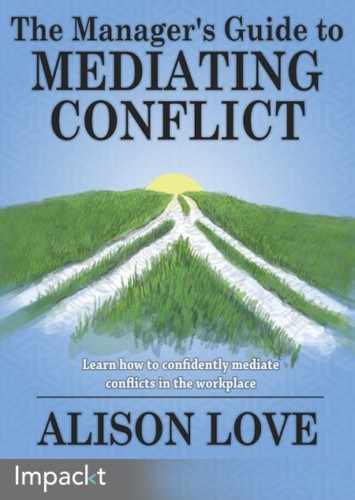In this chapter, we will look at what you might need to do following a mediation to ensure that any agreement is sustained and that relationships continue to work and even improve. We will also look at how the mediation skills and techniques can be used to improve your day-to-day management of employees. These skills can increase employee engagement and help you to positively manage conflicts outside of a full mediation process.
A one day meditation session can often achieve great things. In some cases, dependent on the issues and how far the parties are able to move or achieve understanding and reconciliation, the parties can resolve things fully during the day. If so, you go away with some confidence that the agreement will be sustained and that the parties will co-exist in a better way than before. However, in other cases the agreement reached at the end of the mediation session may only be the start of a journey and one or both of the parties will have to work hard to change the way they behave and sustain this. Also, if one or sometimes even both of the parties struggle to keep to the agreement, it may be difficult to restore trust and things may start to unravel again. There are a number of things that you (and in some cases others) can do to try to support the parties following the mediation where this is necessary:
- Build in a review mechanism to the agreement: This is of course entirely up the parties to decide and therefore not in your control. However, a review can be very useful as an opportunity to revisit the agreement and to take stock of what progress has and continues to be made. The review can be carried out by you or alternatively with another person such as a line manager or HR professional; again this is entirely up to the parties to decide and determine. The question of whether or not a review would be a useful option is something that you could propose for the parties to discuss, along with other options. You just need to be careful not to impose any terms or seek to influence this. In practice, I have found that most parties welcome a review as this gives them some reassurance regarding the commitment to the agreement.
- Share the agreement with others: Obviously you can only do this if the parties agree and consent, and if so this should be clearly expressed in the agreement. However, if this is agreed then this can also be useful as it allows the person with whom the agreement has been shared to check in with the parties to see how things are going and whether the agreement is being implemented. In the majority of cases I have been involved in, the parties have been happy for the agreement, or at least elements of the agreement, to be shared with others. Often the line manager or HR contact has had some considerable involvement and are aware of the issues in any event so the parties have no problem with some feedback being given.

Make a note
In one case I was given consent to provide feedback to a line manager so that they could consider development needs and take some responsibility to ensure that the agreement was being followed. As the mediator, it is very important that you have clear agreement and consent as to what you can and cannot share and feed back to others outside of the process. Obviously that is then the extent of what you can share; do not be drawn into sharing anything beyond this.
- Development support post-mediation: A training or development need may have been identified with one or both parties. As the mediator, you obviously need to be careful not to suggest that this is the case in any judgemental way but I have had situations where parties have understood and indicated that they feel that they need some help and support. For example, in one case a party indicated that they were struggling to understand why the other party reacted and responded in the way that they did and that they wanted help to try and understand this better. If this does arise in some way there are a number of options dependent on the needs. For example, some training on communication skills or coaching around understanding conflict responses, people styles, or emotional intelligence may be appropriate. On some occasions this can be included in the agreement or consent may be given to discuss this with a line manager or HR contact.
The main points to remember here are that the parties are in total control of what you can and cannot share and what (if any) post-mediation support is agreed. On occasions it may be frustrating as you may feel that further support would be helpful, but this is not your decision to make or to impose. The most you can do is put forward options for discussion and agreement. Finally, it might be useful to confirm to those commissioning you to mediate that futher support may well be necessary in some cases so that they are aware of this as well and you manage their expectations.
